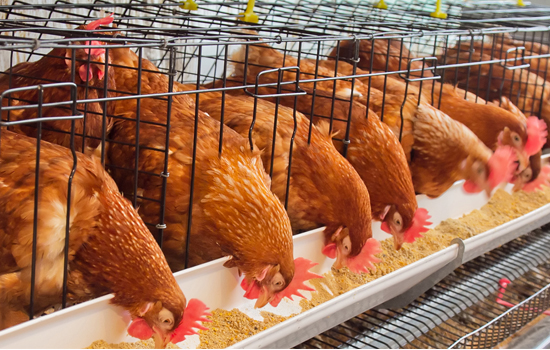The effect of water shortage in laying hens
- font size decrease font size increase font size
Water is an indispensable ingredient. For the growth and development of chickens in poultry farming equipment for sale,it is not feasible to only know how to supplement the chickens with the corresponding nutrients, but pay little attention to the supplement of water sources. How does water shortage affect chickens?
The stomach of the chicken is very small, so the carrying capacity of the water is limited. Therefore, in order to maintain the good performance of the laying hen, it must be continuously supplied with fresh drinking water. If the chickens drink insufficient water, it will lead to the laying hen. The digestion and absorption of the feed is poor, resulting in thick blood, rising body temperature, the growth of the flock and the amount of eggs produced, and the water in the excreta will also drop significantly. In severe cases, the chicken will be dehydrated.

If the chicken is seriously dehydrated, the excessive loss of water in the laying hen may cause it to completely stop eating, the digestive function may decline or even be completely lost, and its immunity and disease resistance will also be weakened. The lack of water in the chicken will also affect its egg production. When the chicken is short of water for 24 hours, the egg production rate will drop by 30%, and the water shortage will increase for 36 hours.
Of course, the water added to the chicken must be clean drinking water. In the daily feeding process, not only the nutrients should be added to the chickens, but also the sufficient water needed for the chickens. Only then can our chickens grow healthily.

